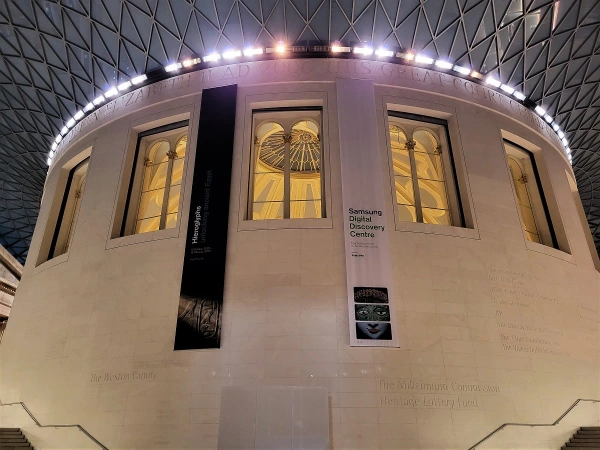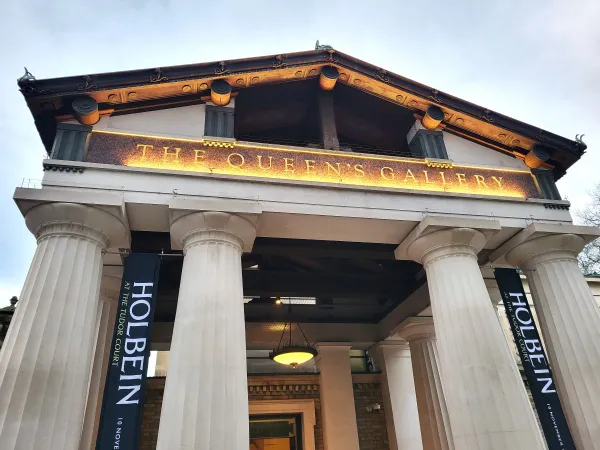When I lived in London, I used to try to get out for a long walk most weekends. One of my favourite walks was from Belsize Park to Marylebone or Regent’s Street in central London, via Primrose Hill and Regent’s Park.
If I was feeling particularly energetic and had the time, I’d sometimes start the walk in Crouch End, making my way to Highgate Woods, through Highgate village and across Hampstead Heath to Belsize Park before continuing into central London.
Short on time this trip and keen to pack in as much as I could, I decided to keep it brief and set off on a nostalgic walk from Belsize Park.
I emerged from Belsize Park tube station to find the sun shining on Havestock Hill, the neighbourhood’s main thoroughfare that’s home to a handful of smart cafés, restaurants and shops.
Turning left out of the tube station, I made my way down the hill, before turning off one of the sidestreets.
I always prefer exploring the sidestreets to the main roads, particularly when I’m in a big city like London. Partly because you never quite know what you might stumble across, but also because they’re so much quieter and easier to navigate than the main roads.
You can take your time looking around without having to worry about getting in other people’s way or manoeuvring through traffic.
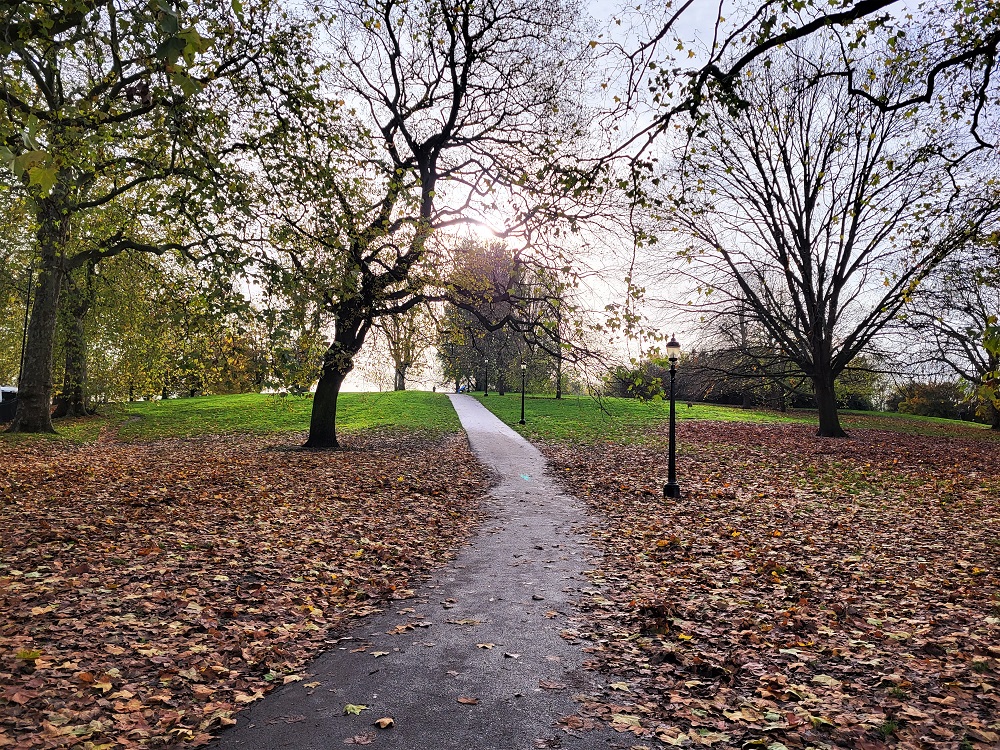
Strolling through Belsize Park, I passed row upon row of enormous stucco-fronted houses until I reached The Washington pub, and then continued down the hill to Primrose Hill Park (above).
The park is a small leafy space in the centre of Primrose Hill, one of London’s most desirable neighbourhoods, to the north of Regent’s Park.
Its managed by The Royal Parks and was opened to the public in the 1850s after the Crown bought the land from Eton College to create a recreational space for the poor.
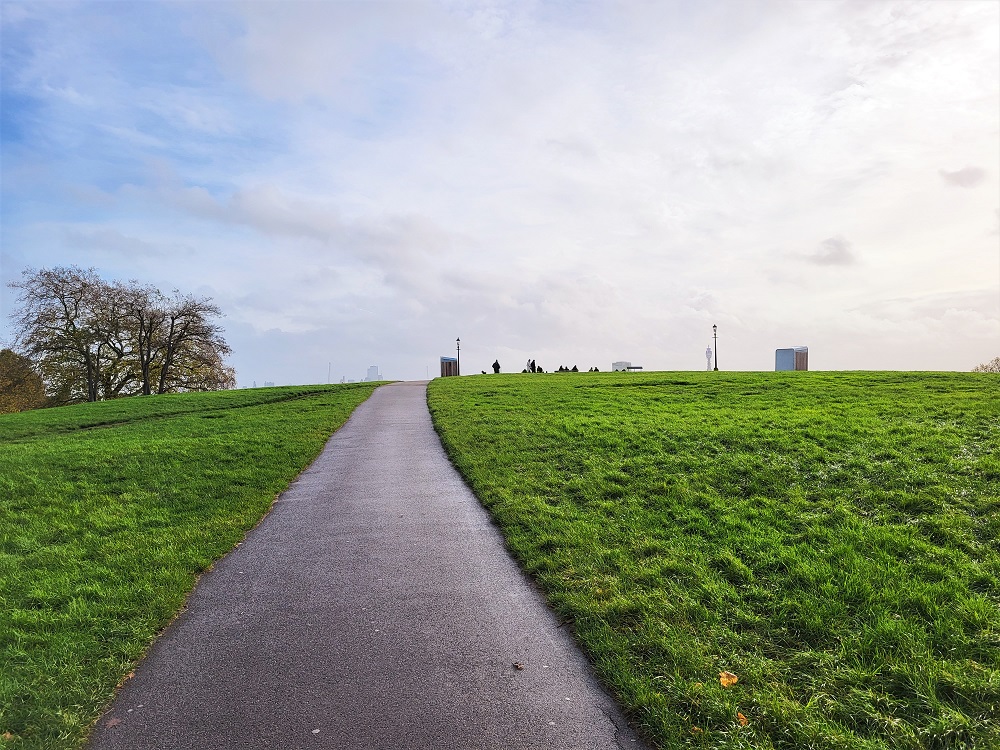
The park is dominated by the huge hill after which the area is named (above), which stands 63m above sea level and boasts one of the finest views in London (below).
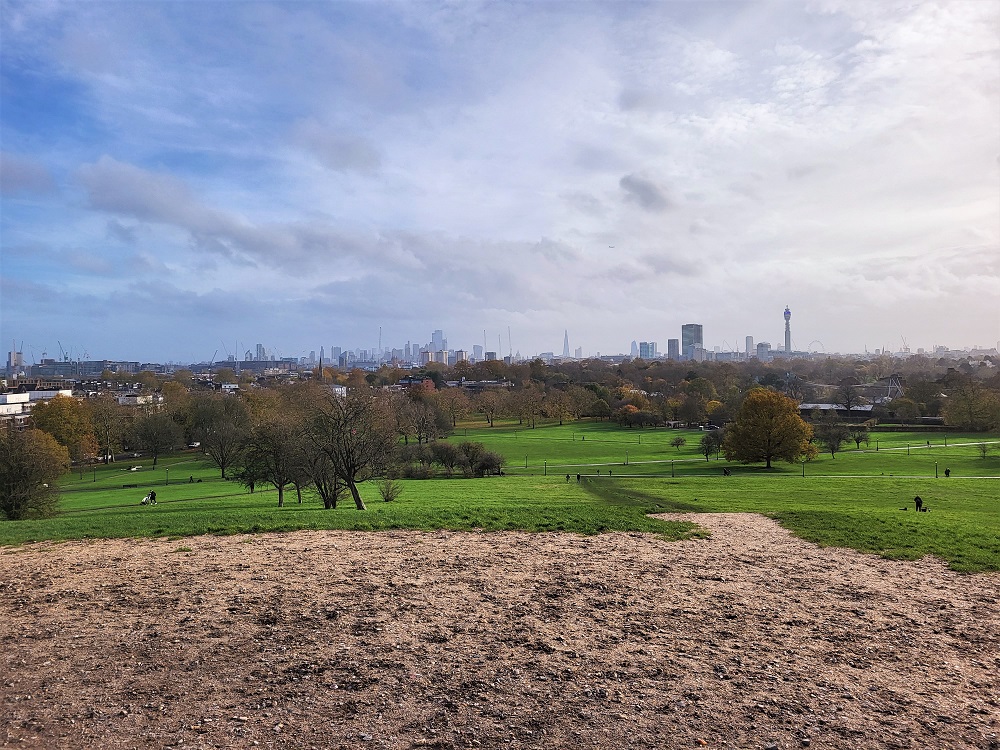
It’s one of six protected viewpoints in the capital, which means the view can’t be obscured in any way and the park’s trees are kept to a certain height to avoid ruining the vista.
Along the edge of the hilltop, there’s a quote by William Blake engraved in a low stone wall that reads: “I have conversed with the spiritual sun. I saw him on Primrose Hill.”
I love the view from the top of Primrose Hill. Even though there are often a fair few others enjoying the scene, too, it always feels very serene, like you’re a world away from London, and I always make a point of visiting whenever I’m in the neighbourhood.

After taking in the view, I ambled down the hill to the lower reaches of the park (above), following the paths until I reached a gate that led out onto Albert Road Terrace.
From here, I strolled along Prince Albert Road until I reached the bridge over the Regent’s Canal next to London Zoo (above).
Regent’s Canal is an 8.6 mile-long waterway that cuts a swathe through the middle of London, stretching from Paddington in the west to Limehouse Basin in the east.
This stretch of canal from London Zoo to Little Venice is another of my favourite London walks because I used to find it so quiet and peaceful I’d often forget I was in the middle of the capital.
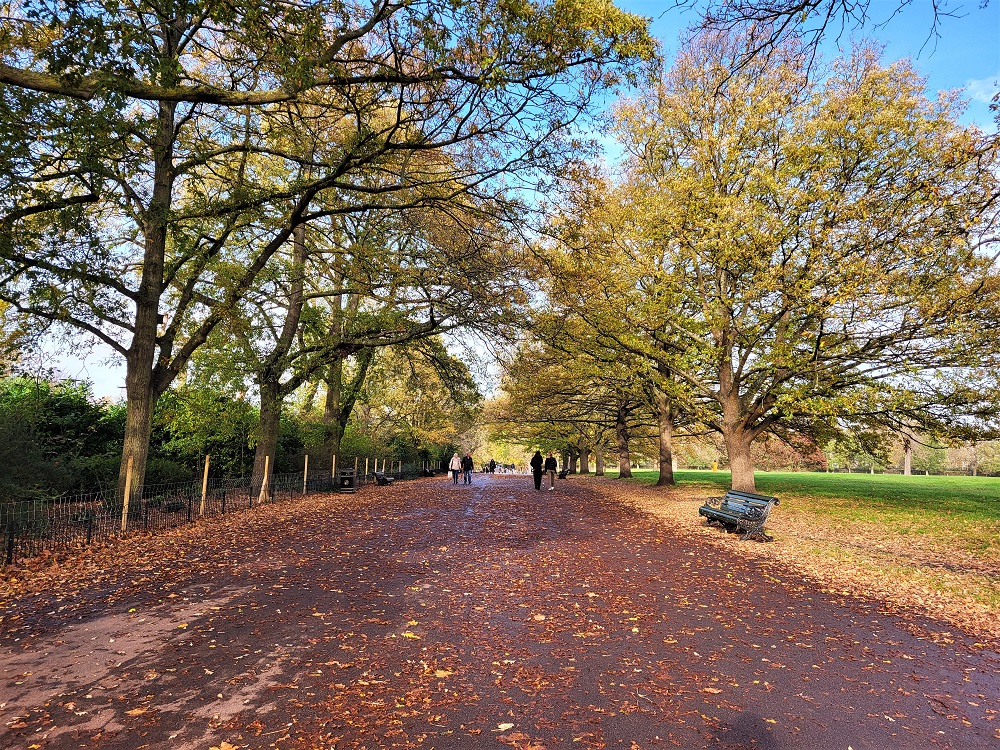
From the canal, I made my way into Regent’s Park and began walking down The Boardwalk (above), passing the entrance to London Zoo.
Regent’s Park is one of eight royal parks in London and spans some 395 acres. It was named after King George IV, who spent nine years as regent for his father, the mad king George III, before ascending to the throne in 1820.
The spacious and attractive park is home to a host of amenities, including the aforementioned London Zoo, a boating lake, an open air theatre and various sports facilities.
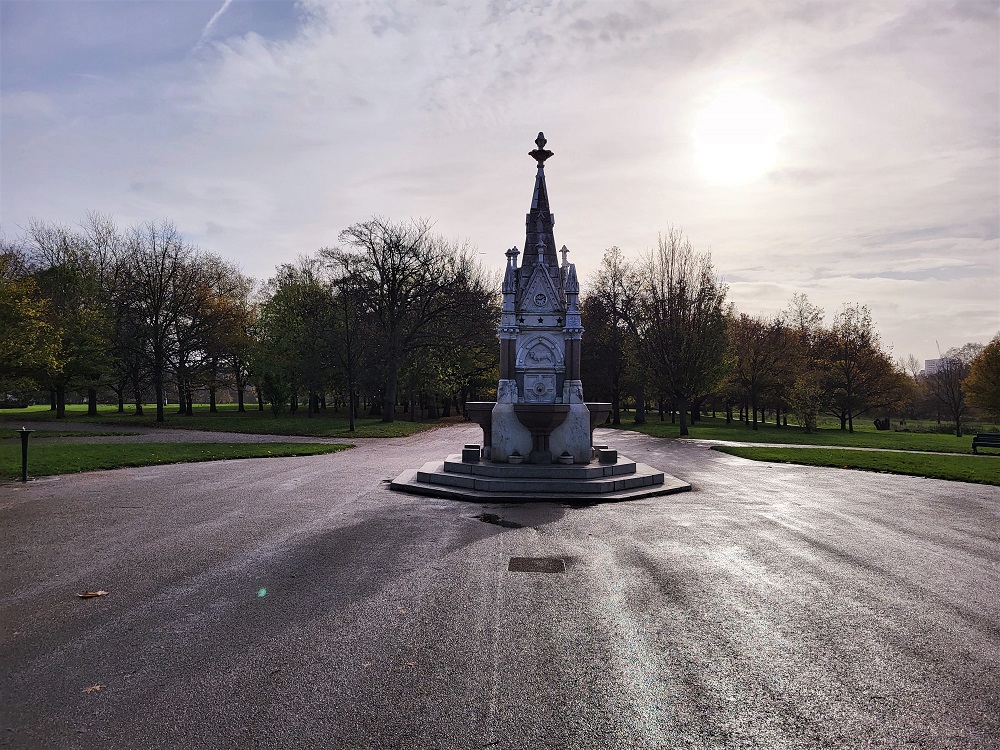
I ambled down The Boardwalk, passing the superbly-named Ready Money Drinking Fountain (above), until I reached Chester Road, where I turned to the right in the direction of Queen Mary’s Gardens.
Queen Mary’s Gardens is a large round space in the south-west of the park named after Mary of Teck, wife of King George V. It was opened to the public in 1932.
Along with the park’s open air theatre, the gardens boast some 12,000 roses, making it the largest collection of roses in London. There’s also a notable collection of begonias.
As it was late November, it wasn’t the best time of year to see the roses but a few hardy stragglers were still clinging to life (above).
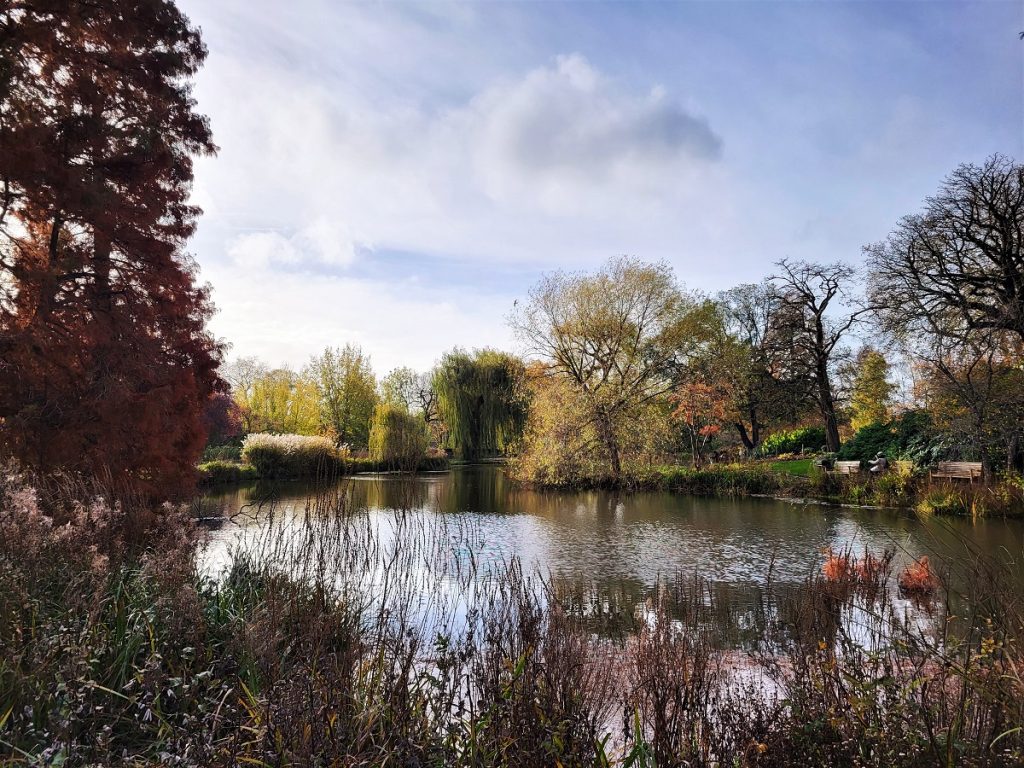
The gardens are also home to a picturesque lake with a small Japanese-inspired island, and I spent quite a bit of time photographing the lake as it looked delightful in the autumn sunshine (above and below).
From the lake, I continued my walk through the gardens until I reached the Jubilee Gates.

I then carried on through the park, passing the tennis courts and making my way over York Bridge (below), until I reached Euston Road.
Crossing the ever-busy thoroughfare, I weaved my way through Marylebone, passing the many chic shops and cafés that line Marylebone High Street, before veering off through the sidestreets to my next port of call, the wonderful Wallace Collection.
I really enjoyed my nostalgic trip down memory lane through Belsize Park, Primrose Hill and Regent’s Park.
It’s a peaceful and relaxing walk through some of the most beautiful neighbourhoods and parks in London, and it brought back some fond memories.



